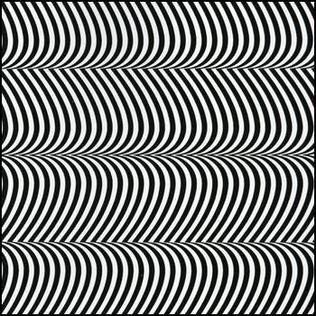
Pulse Demon is an album by the Japanese noise musician Merzbow. Unlike Venereology, his previous album for Release, this album is not inspired by heavy metal. Outtakes from this album are included on Merzmorphosis.

Frog is an album by the Japanese noise musician Merzbow. It was inspired by frogs and utilizes their sounds. Masami Akita exhibited the audio and images at Yokohama Triennale 2001 in an installation called "Moss Garden". It was reissued on CD in 2002, retitled Frog+, with a bonus disc of additional material and a screensaver.

Houjoue (放生会) is a box set album by Japanese noise musician Merzbow. It was recorded while Masami Akita was writing Cruelty Free Life, a book about vegetarianism and animal rights. The title itself come from the hōjōe ceremony, where captive animal are released back into the wild.

Cloud Cock OO Grand is an album by the Japanese noise musician Merzbow. It was Merzbow's first CD and showcases his then-new harsh noise style.

Noisembryo, subtitled Psycho-Analytic Study of Coital Noise Posture, is an album by the Japanese musician Merzbow.

Hodosan (宝登山) is an album by the Japanese noise artist Merzbow. It is the fifth and most recent Merzbow album on Vivo. The album photos were taken at the zoo on Mount Hodo.

Antimonument is an album by the Japanese noise musician Merzbow. It was originally released as a picture disc LP and reissued on CD by Art Directe in 1991. The CD is now considered a bootleg since the label did not pay the artists.

Kamadhenu is an album by the Japanese noise musician Merzbow. It is the first volume of the Merzcow trilogy, inspired by cattle veneration in Hinduism. The theme was suggested by the owner of the label, who visited the Care for Cows charity in Vrindavan, India, which takes care of abandoned cattle. The music is intended to be "warm and organic", and was made using granular synthesis, oscillators, and tone generators.

Yaho-Niwa is an album by the Japanese noise musician Merzbow. The first 50 copies came with a signed and numbered postcard.

Surabhi is an album by the Japanese noise musician Merzbow. It is the second volume of the Merzcow trilogy, inspired by cattle veneration in Hinduism. The theme was suggested by the owner of the label, who visited the Care for Cows charity in Vrindavan, India, which takes care of abandoned cattle. The music is intended to be "warm and organic", and was made using granular synthesis, oscillators, and tone generators.

Uzu Me Ku is an album by the Japanese noise musician Merzbow. It features the Koto, a traditional Japanese instrument, "manipulated through granular synthesis by digital and analogue electronics devices." According to Masami Akita, "Uzume Hikoyuzu" means "spiral generating" and "Itsu Akitsu" means "generating of particles". The album photos were taken at the Nagasawa Purification Plant in Kawasaki, Japan, which was designed by Mamoru Yamada.

Gman//HJYUGTF2 is an album by the Japanese noise musician Merzbow. According to the label, it mixes noise and drone with clean drumming and Jew's harp. It is from the same sessions as Uzu Me Ku, and the cover photo was taken at the same location.

Ko To No O To is a 7" release by the Japanese noise musician Merzbow. It is the first in a series of 7"s by seven different artists on the label.

Kibako is a studio album by the Japanese noise musician Merzbow. It was released on December 12, 2012 by the Italian label Rustblade, and is his second release on the label. Rustblade describes the album as consisting of "tribal wooden instruments, violent analogue synths and ambient soundscapes".

Samidara is an album by the Japanese noise musician Merzbow, released as both an LP and a cassette. It was made available for pre-order on December 5, 2012, but didn't start shipping until July 2013.

Tamayodo is an album by the Japanese noise musician Merzbow. It is described as "monotonic electro pulse-noise works by all analogue equipments."

Pulse Vegan is a 7" release by the Japanese noise musician Merzbow. It is available exclusively to backers of a Kickstarter campaign to fund a vegan food trailer in Austin, Texas being opened by the owner of Elevator Bath. The business is named Pulse Vegan after the recording.

Nezumimochi is an album by the Japanese noise musician Merzbow. It is a picture disc LP and a CD set. It is described as "monotonic electro pulse-noise works by all analogue equipments."






















